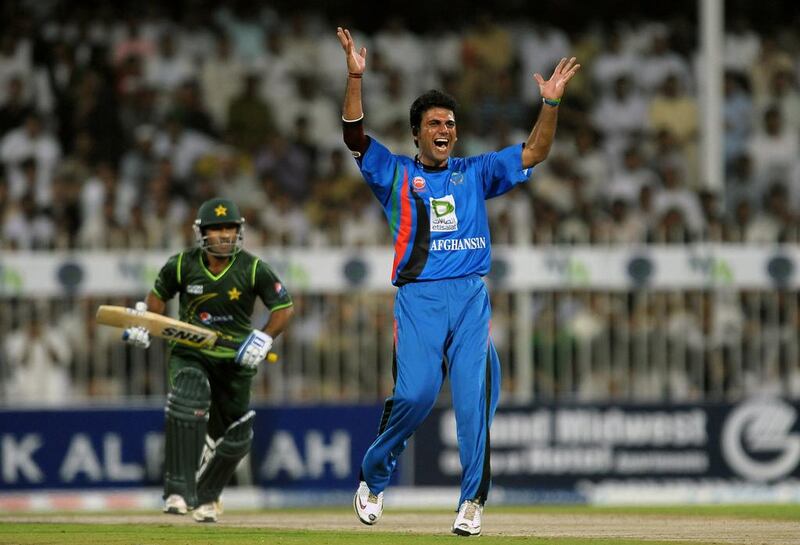In the geopolitical sense, Pakistan and Afghanistan have a complicated relationship. That is putting it without any spice.
The complication is a product of ancient history: the border Afghanistan shares with the north-west region of Pakistan may as well not exist in a cultural and geographical sense.
It is also an exacerbation of modern, dirtier history. “Inseparable brothers”, the Afghan president Hamid Karzai called them, which captures exactly the resigned, less-than-loving fraternalism. Neither has often done right by the other in recent years.
Far be it for cricket to make anything less complex, but in the case of their cricket sides, it has managed.
Because, when the two sides play today in Sharjah, it will be partly the result of, and against the backdrop of, a healthy relationship that is almost unique in world cricket today.
Nothing should be taken away from Afghanistan’s wonderful rise through world cricket to where they are now. It is their achievement, theirs to own indisputably.
But not enough is often made of the role the Pakistan Cricket Board (PCB) has played, not in the rise directly, perhaps, but in enabling it.
“They’ve been really important,” the ICC’s global development manager Tim Anderson said. “The word is not adopt, but it is almost like they’ve adopted Afghanistan as their neighbour and really tried to help them out over the past couple of years.”
Today’s Twenty20 international will be the first Afghanistan have played against a full member outside of an ICC event.
In February 2012, they played Pakistan in an ODI in Sharjah, the first they had ever played against a full member (the only other full member they have played is Australia, also in Sharjah, in August 2012).
It stretches far beyond just international opportunities. Since 2008, the PCB has actually implemented at least 10 development initiatives with the Afghan cricket side, all through their own high-performance academy in Lahore, the National Cricket Academy (NCA).
These include hosting training camps for the World Cricket League, conducting high-performance training programmes for their cricketers under the NCA’s elite coaches, inviting the national side to participate in their domestic Twenty20 competitions, playing one-day games against the Pakistan ‘A’ side, designing education programmes for Afghan coaches and much else.
It is not financial assistance per se, because that is something the PCB cannot afford currently.
But by allowing their resources to be used, resources which have a financial value, it is almost as good.
The two boards recently signed an agreement formalising the relationship, in which further assistance to Afghanistan’s Under 19 side has been inked in, ahead of the World Cup in February 2014.
There are other examples of full members providing assistance to Associate nations. Australia, for instance, is committed to helping the region around it and has done a fair bit for Papua New Guinea. England’s relationship with Ireland and Scotland is a substantial one, if not always healthy.
Yet while Pakistan’s relationship with Afghanistan is anomalous, it could even someday serve as a template – could not the BCCI, for example, adopt an associate in a similar way? What about Nepal, where there is a history, by the way of some assistance?
It is commendable, too, given the messes and the constraints the PCB is under. The irony of the PCB helping another board to keep its house in order will not be lost on anyone.
Not surprisingly, the push for it has come from Subhan Ahmad, the PCB’s chief operating officer, one of its longest-serving and more influential officials.
He has been on the ICC’s development committee for some time and is acknowledged as a progressive voice on the cause of developing members.
He is merely acting within the strictures of his own board’s history, one that has always seen gradual expansion of the game in the surrounding region as an important ambition.
In the fights of Sri Lanka and Bangladesh to develop and attain full-member status, the Pakistan board stood firmly alongside them, pushing them, even. If Afghanistan ever get there, the PCB will not be anywhere else.
osamiuddin@thenational.ae
Follow us on twitter at @SprtNationalUAE





